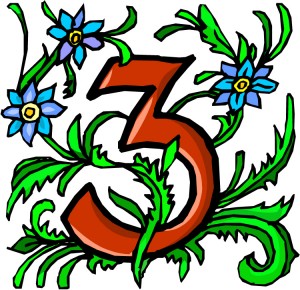In this video, we explore the Torah-covenantal perspective on divine healing and move through the Psalms, Prophets, Gospels and Epistles to give a whole Bible or holistic view of divine healing. With the Torah as the foundation, we learn how divine healing relates to our privileges and responsibilities as born-again disciples of Yeshua.
Category Archives: Scripture
Blog Scripture Readings for 2-7 Through 2-13-16
Aside
THIS WEEK’S SCRIPTURE READINGS FOR STUDY AND DISCUSSION:
Parashat Terumah — Exodus 25:1 – 27:19
Haftarah — 1 Kings 5:26 – 6:13
Prophets — 2 Kings 3:1 – 9:37
Writings — Psalms 119:17 – 119:128
Testimony — Luke 20:1 – 22:53
Most of this week’s blog discussion points will be on these passages. If you have general comments or questions on the weekly Scripture readings not addressed in a blog post, here’s a place for you to post those. Just use the “leave a reply” link below.
The full “Read Through The Scriptures In A Year” schedule, broken down by each day, can be found on the right sidebar under “Helpful Links.” There are 4 sections of scripture to read each day. One each from the Torah, the Prophets, the Writings, and from the Testimony of Yeshua. Each week, the Torah and haftarah readings will follow the traditional one-year reading cycle.
Weekly Blog Scripture Readings for 2/7 through 2/13/16.
Can you trust your feelings? If not then what can you trust?
Should we make major life decisions based on our feelings?  Should we make moral choices that determine what is right and wrong based on our feelings? To what degree can we trust our feelings? If we can’t trust our feelings, then what can we trust?
Should we make moral choices that determine what is right and wrong based on our feelings? To what degree can we trust our feelings? If we can’t trust our feelings, then what can we trust?
In our modern culture, it is becoming more common for people to act or speak based largely if not totally on their feelings. For many, feelings have become their “moral compass” determining what is right and wrong and thus their actions. Is this a reliable standard to follow? If everyone is following their feelings, does this promote and insure peace and stability in a society over the long haul?
What are feelings? The dictionary defines feelings as “an emotional state or reaction; the emotional side of someone’s character; emotional responses or tendencies to respond; a belief, especially a vague or irrational one.” In short, Continue reading
New Video: From Egypt to the Mountain of YHVH — The Gospel Message
In this video, we will learn how the children of Israel’s deliverance from Egypt and trek to Mount Sinai where YHVH gave them his instructions in righteousness in preparation for entering the Promised Land contains the full gospel message. It is the story of our spiritual journey, and gives us inisghts into what lies ahead for us en route to the Promised Land of our spiritual and eternal inheritance through Yeshua the Messiah.
What is the “cup of salvation?”
Psalms 116:13, Cup of Salvation [Yeshua]. This is the only place this phrase occurs in the Scriptures, and it’s prophetic significance should not to be overlooked.
The Hebrew word cup [kos] often relates to Elohim’s judgment as he pours out his wrath upon rebellious people (e.g. Jer 25:15). Yeshua encountered this cup at Gethsemane (Matt 26:39).
There is also a cup of blessing, which men can drink from if they choose to do so. This is the cup of YHVH’s blessing and forgiveness through Yeshua that he offers to men. This is the subject of this passage. Interestingly, the third cup of the Passover seder is called the cup of redemption (or salvation). This is the communion cup that Yeshua offered his disciples at the last supper. It was this cup that represented the blood of the Savior and that was taken along with the unleavened bread representing Yeshua’s body. This same cup of salvation pictures the saint’s blessed relationship with Yeshua, and is a picture of the new covenant, which, in reality, is the saint’s entering into a state of marriage betrothal to Yeshua their heavenly Bridegroom.
Three Feasts, Three Rooms and Three Spiritual Levels
Exodus 23:14–19, Three times you shall keep a feast.
Conventional Jewish wisdom teaches us that during the three biblical pilgrimage festivals of Passover/Unleavened Bread, Pentecost and Tabernacles all the individuals of the nation are to leave their place of individual isolation and are to rendezvous in the presence of the one Elohim of Israel. This was to occur in the festival circle (or chag) around the common sanctuary (where YHVH has chosen to place his name, Deut 16:2, 11, 15), thereby becoming conscious that each one is connected to all the other members of the nation, with YHVH Elohim, and with the Torah (The Pentateuch—Deuteronomy, p. 310, by S. R. Hirsch). In biblical times, the Israelites would gather wherever the tabernacle had been placed. When the temple was built in Jerusalem, this city became the destination of the Israelite pilgrims on these three biblical feasts.

But there is much more to this spiritual picture if we add Yeshua the Messiah of Israel into the picture, for each of the three feasts point directly to him. Passover and the Feast of Unleavened Bread, the Feast of Weeks or Pentecost, and the Feast of Tabernacles all point to Yeshua, since the first two festal periods point to Yeshua’s first coming, while the last fall feast points to his second coming. Each of these feasts represent milestones in the spiritual journey of the redeemed believer from initial redemption to glorification and eternal life in the presence of YHVH Elohim.
There were three sections in the Tabernacle of Moses (Heb. mishkan): the outer courtyard, the holy place and the holy of holies. These three correspond with the three parts of man, which are his body, soul and spirit (1 Thess 5:23). The feasts of Passover (Heb. Pesach) and Unleavened Bread (Heb. Chag haMatzot) are the first two feasts the righteous believers are to celebrate in the spring and represent the first steps in a new believer’s spiritual walk. This corresponds with the outer courtyard and relates more to the spiritual cleansing of the outer parts or body of man. It is here that one begins their spiritual walk and relationship with Yeshua, who is the Word of Elohim. The Feast of Weeks or Pentecost (Heb. Shavuot) is the next step one takes in their spiritual walk as one goes inside the Tabernacle of Moses. The tabernacle’s holy place speaks of bringing the soul (the mind, will and emotions) into submission to the will of YHVH as one advances in their spiritual walk and learns about the fruits and gifts of the Spirit of Elohim, who they are as redeemed Israelites, and about worship and praise.
Finally, the holy of holies corresponds to the Feast of Tabernacles (Heb. Chag haSukkot) and the spirit part of man. This part of the tabernacle speaks more to man’s ultimate spiritual relationship with Elohim. It is here that man relates to Elohim, who is a Spirit, on a deeper spirit to Spirit level (John 4:24; 1 Cor 2:10–13). This prophetically points to man’s ultimate destiny as glorified beings in the New Jerusalem as adopted members into the family of Elohim (John 1:12; Rom 8:14–15, 23; 9:4; 2 Cor 6:18; Gal 4:5–6; Eph 1:5; 1 John 3:1; Rev 21:7).
The Secular Judge and the Persistent Widow—An Encouraging Story
Luke 18:2, A judge. In this parable of the Persistent Widow and the Unjust Judge, Yeshua is using a Hebraic form of reasoning or argument called kol v’khomer where a point is made from a lesser weight to heavier weight. In other words, if premise A is correct, then how much more so is premise B correct?
In the Jewish religious thinking of the first century, this is one of the seven laws of biblical interpretation of Hillel the Great (ca. 32 b.c. to A.D. 7) who was one of the greatest Jewish religious leaders of Yeshua’s day. In this parable, Yeshua is making the point that if an ungodly, secular judge who cares little about the needs of a widow will grant her wishes because of her persistent pleas for justice against her enemies, how much more will Elohim hear and answer the prayers of his elect saints who have faith in him and cry out to him continually to avenge them of their enemies.
A day of judgment is coming when the scales of justice will be balanced in favor of the saints of the Most High Elohim, the Just Judge of the universe. Certainly Elohim presently attends to the needs of his servants and gives them victory over their enemies in many small ways. But many believers are still suffering greatly at the hands of the wicked who don’t fear Elohim. However, the day is coming when YHVH will move with a mighty hand and universally avenge his servants of all their enemies small and great. Until then, the righteous martyrs continue to cry out asking Elohim, “How long, O YHVH, holy and true until you judge and avenge our blood on those who dwell on the earth?” (Rev 6:10). His answer to them is to wait just a little longer (verse 11), for the great day of YHVH’s wrath, the wrath of the Lamb, which is coming upon the wicked (verse 17) is coming soon. Until then, YHVH promises to never leave nor forsake his servants (Heb 13:5), so be strong in him!



